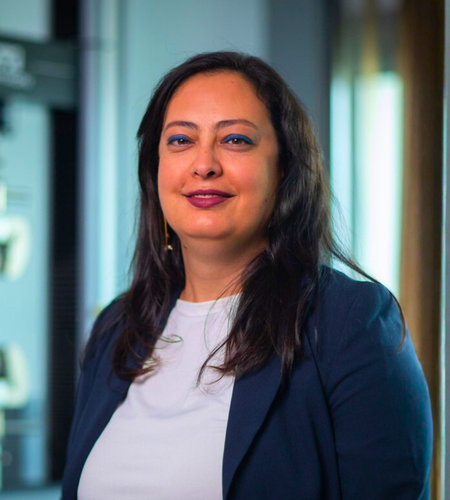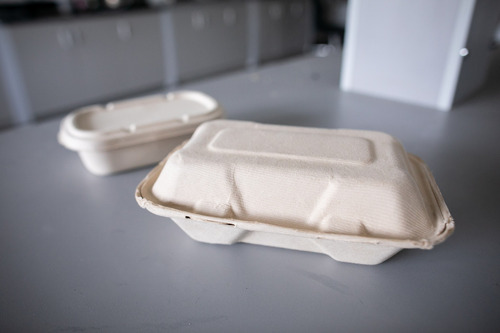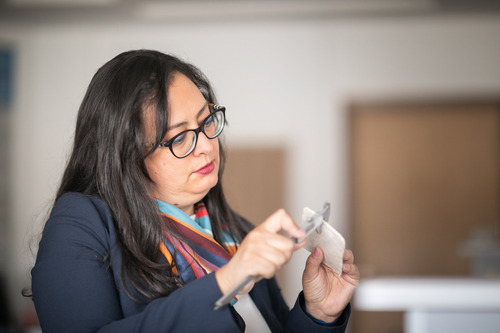
Biodegradable packaging made from recycled materials
A key aspect of environmental sustainability is the creation of a circular economic model where unwanted materials are cost-effectively repurposed into new products. In Egypt, Associate professor Irene Samy is delivering impact by extracting natural polymers from shrimp shell waste, as well as transforming sugar cane byproducts into biodegradable packaging. These products could recycle huge volumes of waste materials, ensuring sustainable production patterns and minimising food waste.
Innovation and Impact: Packaging From Discarded Waste
Irene’s concept involves the valorisation of waste to create a circular economic model where environmentally friendly packaging is manufactured using otherwise discarded materials. By replacing synthetic components with natural ones, such as incorporating additives from the waste of aloe vera waste and cotton, fully biodegradable materials with stronger structural properties can be manufactured using only discarded matter, going on to produce food packages and packaging material for a fraction of the traditional price.
In a presentation at COP27, Irene explained the direct correlation of her invention to the UN Sustainable Development Goals. Her work on waste valorisation and the production of biodegradable materials accords with ambitions of building sustainable communities while targeting responsible consumption and production. Prolonging the lifespan of foodstuffs contributes to the critical focus on achieving zero hunger, while replacing harmful materials like Styrofoam supports efforts to reduce marine pollution from land-based activities.
Irene assembled a team of physics and chemistry students to assist with biodegradability and toxicity testing, demonstrating that her products are non-toxic with no particle migration. Having already experimented with five types of waste, she explains that a net zero, circular economic model can improve the environmental credentials and longevity of food packaging: “We can control the biodegradability of the packaging we are producing, while prolonging the shelf life of a refrigerated tomato from seven days to 17 days.”
We can control the biodegradability of the packaging we are producing, while prolonging the shelf life of a refrigerated tomato from seven days to 17 days.
Irene Samy

How has LIF Impacted your Business and Future Plans?
“LIF was a turning point because I learned that my work’s not all about research,” says Irene. “It's about research that has an impact. The Academy helped me to combine all my skills – how to manage my team, how to fabricate and test. I also learned about licensing, patenting, and intellectual property. After LIF, I was experienced in both the technical and the business background, on how to commercialise the products.” The mentoring Irene received was so valuable that she subsequently embarked on a mentorship training programme herself.
Irene describes her products as being one step away from a commercial offering, crediting LIF with helping to define her route to commercialisation. She is now looking for a business partner to handle the operational side of the company: “We plan on gaining a conservative market share of 10% in our first year. We have already received initial order inquiries regarding our product.”
In the meantime, she continues to develop connections with overseas universities and publicly owned companies in Egypt, while encouraging other academics to join the LIF programme: “It'll open your mind to certain aspects that might not be clear while you're doing your research, putting you on the right track for success.”

LIF was a turning point because I learned that my work’s not all about research, it's about research that has an impact.
Looking to find out more about our entrepreneurs?
Click below to find out more about the entrepreneurs from this year's programme.
